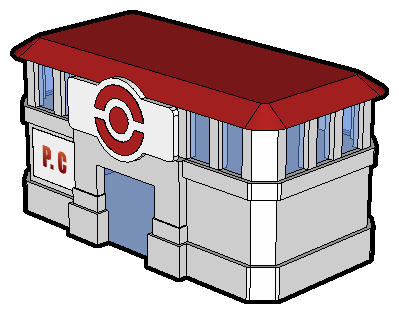 With the nation’s focus turned to proposed health care reform it is vital to examine the issue from differing perspectives to adequately and responsibly resolve the highly debated issue.
With the nation’s focus turned to proposed health care reform it is vital to examine the issue from differing perspectives to adequately and responsibly resolve the highly debated issue.Perhaps the many health care solutions from the world of video games could be considered in development of a new system for America.
Below is an examination of how many popular video game titles approach the vital issue of good health.
Proportional Medial Costs
 Russian immigrant Niko Bellic from Rockstar’s “Grand Theft Auto IV” is certainly one of the 50 million Americans living without health insurance. His illegal organized crime and drug smuggling profession is not only highly hazards to his health, but also lacks heath benefits. However, when Niko’s health is in serious jeopardy he is never turned away from the many hospitals in Liberty City due to his lack of coverage.
Russian immigrant Niko Bellic from Rockstar’s “Grand Theft Auto IV” is certainly one of the 50 million Americans living without health insurance. His illegal organized crime and drug smuggling profession is not only highly hazards to his health, but also lacks heath benefits. However, when Niko’s health is in serious jeopardy he is never turned away from the many hospitals in Liberty City due to his lack of coverage.In fact, the costs of hospital visits in Liberty City are proportional to Niko’s net worth. Not matter if he is shot, drowned, or faces a catastrophic explosion; the hospitals of Liberty City only require payment that is 10 percent of his net worth which is capped at $10,000 if he owns more than $100,000 – all without health insurance.
Estimates from the Healthcare Cost and Utilization Project (HCUP) through the Agency for Healthcare Research and Quality (AHRQ) suggest the average cost of a hospital visit was $19,400 for uninsured Americans in 2006. Perhaps this virtual New York City may have a possible solution for America’s uninsured.
Preventative Care
Perhaps Americans could improve their overall health through more preventative care.

Take Sega’s “Sonic the Hedgehog” for example. Sonic insures his own health through the preventative care of golden rings. Although Sonic does not expect to find himself in poor health, he gathers golden rings so that if he finds himself landing in hot lava or perhaps atop sharp spikes, he knows his golden rings will save him from certain death. Of course the drawback is that no matter if he has one or a hundred handy, he loses them all at once.
Nevertheless, countless video game characters use some form of shield or body armor to protect their individual wellbeing. These precautions are in preparation for unexpected complications in the future.
Health Regeneration
Combating an onslaught of enemy fire is never as dangerous as it seems for hardened first-person shooter veterans like Master Chief in Bungie’s “Halo” franchise due to health regeneration. Many FPS have shown that hospital visits and health packs are no longer necessary to sustain perfect health. After absorbing countless bullets, laser projectiles, and explosives an individual blessed with regenerative health simply experiences a slowed heart rate and tunnel vision until health eventually regenerates within a few seconds.
 Best of all is that this technology has allegedly existed since World War II. American and Russian infantrymen have benefited from regenerated health as early as the 1940s thanks to Activision’s “Call of Duty” franchise. Perhaps simple regeneration from undesired health could be a solution to the health care dilemma.
Best of all is that this technology has allegedly existed since World War II. American and Russian infantrymen have benefited from regenerated health as early as the 1940s thanks to Activision’s “Call of Duty” franchise. Perhaps simple regeneration from undesired health could be a solution to the health care dilemma.Health Recovery Zones
The solution to end suffering from poor health may just come from the invention of practical health recovery zones. These chambers, crystals, and machines are abundant in video games and immediately resolve any and all health concerns.

How does Samus Aran recover health in Nintendo’s “Metroid Prime” series? She finds one of the several conveniently placed “save rooms” where she can not only save her progress, but restore her health as well. Likewise, Square-Enix’s “Final Fantasy” series features several titles where a crystal is used to save data and restore not only health, but cure various aliments ranging from poisoning to petrifaction.
Even Nintendo’s “Pokemon” series allows Pokeman trainers to visit a “Pokemon Center.” At these centers, trainers can have their beloved Pokeman healed through a special machine which uses a conveyor belt system to turn “fainted” Pokemon to healthy and active creatures.
Items, Potions, and Magic
Any Role-Playing Game fan will tell you that no quest is surmountable without a healthy supply of potions, items and a working knowledge of white magic to heal ones self and companions.
Link from Nintendo’s “Legend of Zelda” series usually maintains an arsenal of red and blue potions, Lon Lon Milk, or – on special occasions – magic fairies which can recover health instantly and even cheat death. Perhaps some investment in research could be made to discover how to create these cure-all potions or discover a great fairy fountain or
 two.
two.The “Final Fantasy” series offers a wide array of solutions to health care issues. A trained white mage can cure degrading health, remedy life-threatening conditions, and even revive the dead. If you are not fortunate enough to possess these skills and know of no one who does, there is a plethora of items that will perform the same function from Hi-potions to Remedy’s to the infamous Phoenix Down.
Dropped and Discovered Health
 Perhaps the most common and oldest forms of health care in the video game world are dropped health items or those that can be discovered throughout the world. From “Mega Man” to “Super Mario Bros.” health items are only a few steps away at any time. Capcom’s “Mega Man” needs only to annihilate his robotic foes to acquire health spheres. The most common of all health remedies in video games.
Perhaps the most common and oldest forms of health care in the video game world are dropped health items or those that can be discovered throughout the world. From “Mega Man” to “Super Mario Bros.” health items are only a few steps away at any time. Capcom’s “Mega Man” needs only to annihilate his robotic foes to acquire health spheres. The most common of all health remedies in video games.Likewise, Nintendo’s “Super Mario” features another common form of video game health care – discovered items. Just smash a few blocks and there is your mushroom power-up or perhaps break a few crates in Capcom’s “Resident Evil” series to find precious herbs and first-aid sprays.
Nevertheless, Mario’s most recent adventures highlight the painful reality of the American health care system. In his recent three-dimensional endeavors, Mario has found solace in collecting coins to regenerate his health. Even the Japanese-created, Italian plumber understands the harsh fact that in America - and under any plan - the only insurance of good health is some serious coin.











2 comments:
This was amazing!
Awesome.
Post a Comment